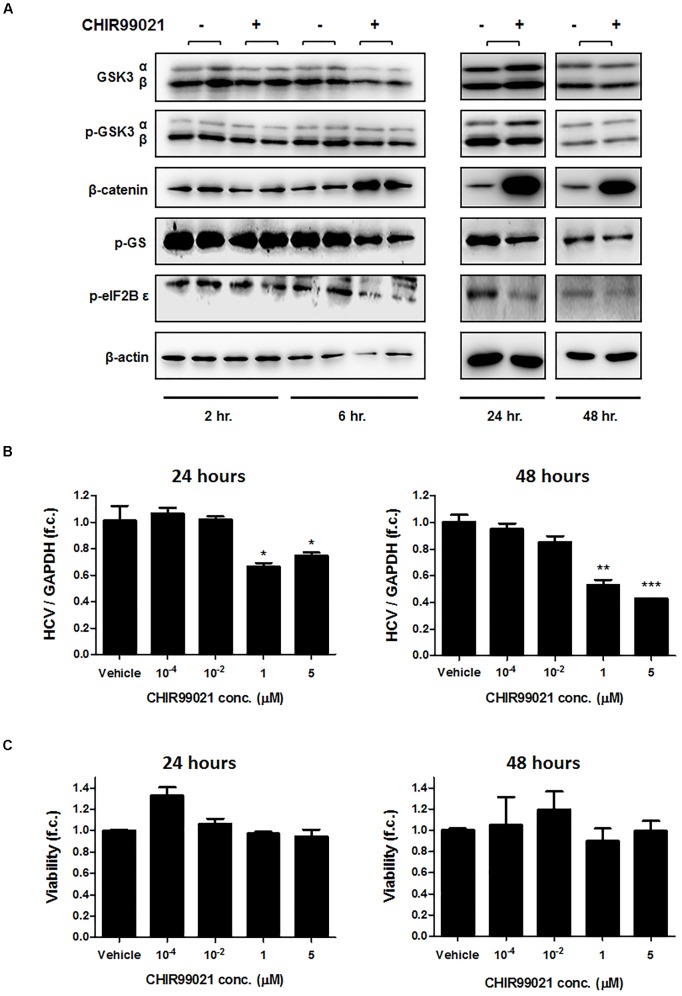FIGURE 1.
GSK3 inhibition suppresses HCV replication. (A) Confirmation of GSK3 inhibition by CHIR99021. Immunoblot analysis was carried out for total and phosphorylated-GSK3α/β (Ser 9/21), β-catenin, phosphorylated glycogen synthase (GS), eukaryotic initiation factor 2B𝜀, and β-actin after treatment of Huh-7.5 cells harboring Con1 replicon with 5 μM CHIR99021 for 2, 6, 24 and 48 h, as indicated. (B) Suppression of subgenomic HCV replication by GSK3 inhibition. Huh-7.5 cells harboring Con1 replicon were treated with different concentrations of CHIR99021 for 24 and 48 h. HCV RNA levels normalized to GAPDH mRNA are expressed relative to untreated cells. (C) Assessment of GSK3 inhibitors’ cytotoxicity. WST-1 cytotoxicity assay was carried out for cells stimulated for 24 and 48 h with different concentrations of CHIR99021 at seeding densities of 10,000 and 15,000 cells per well in 96-well plates. Absorbance readings (A450 – A690 nm) of treated cells were compared to negative control cells treated with the dimethyl sulfoxide vehicle. Data are presented as mean ± SEM of six independent experiments. Asterisks denote statistically significant differences (∗P-value ≤ 0.05; ∗∗P-value ≤ 0.005; ∗∗∗P-value ≤ 0.0005).

